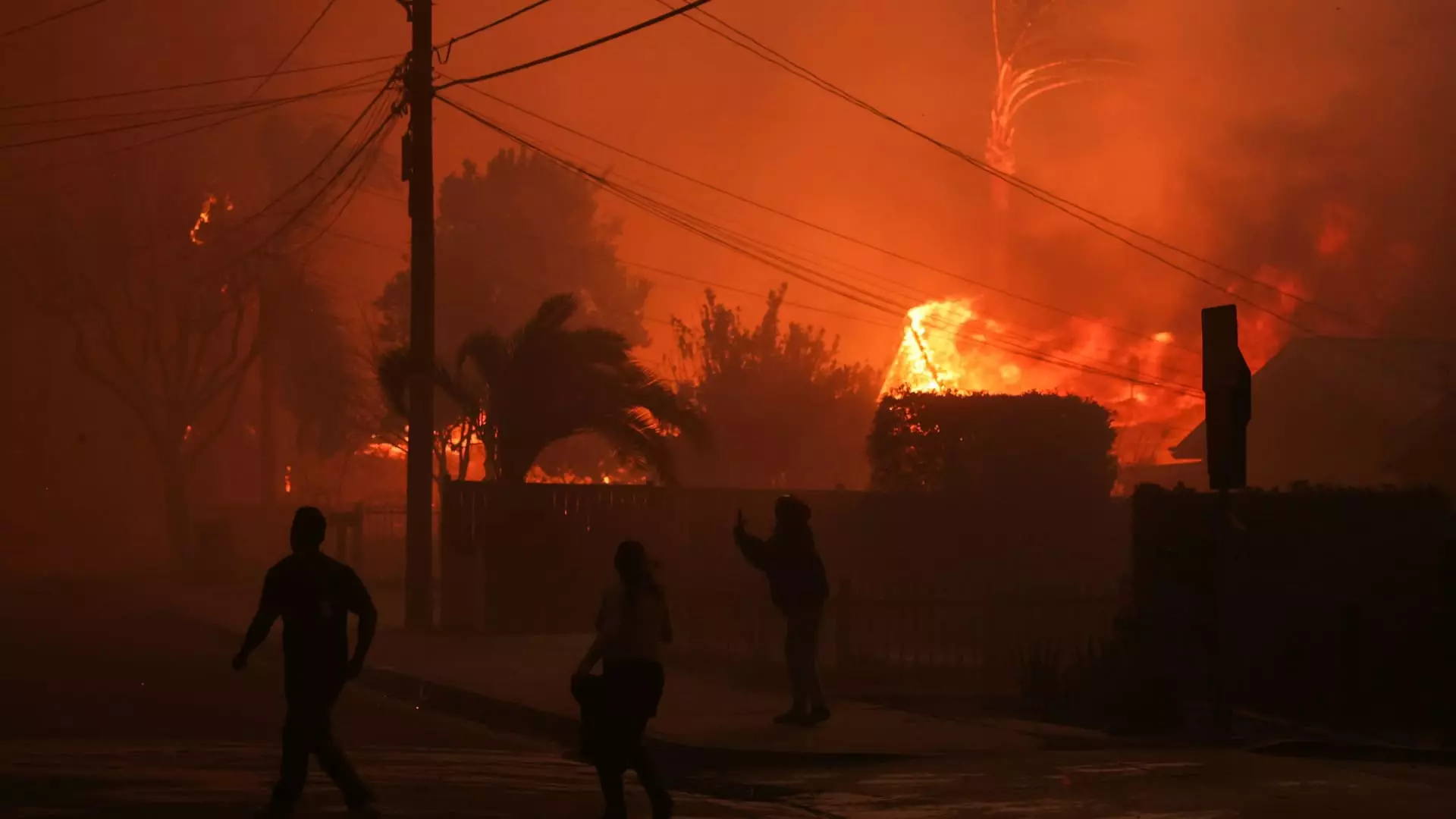The recent wildfires in California have ignited turmoil in the stock market, particularly affecting shares of Edison International, the parent company of Southern California Edison, which services the Los Angeles area. Trading on a particularly volatile Wednesday saw Edison’s stock plummeting by a staggering 13%. This sharp decline signals not only the immediate financial implications for the utility but also the broader unease that such natural disasters instill in investment communities.
As several large wildfires rage around Los Angeles, fueled by strong winds that threaten to exacerbate the situation, the urgency of the crisis has been underscored by mandatory evacuations for tens of thousands of residents. Tragically, at least two lives have been lost as a direct consequence of these blazes, intensifying public concern and scrutiny of utility companies like Edison International. Reports indicate that nearly 70,000 customers were left without power as of Wednesday morning, raising further alarms regarding the utility’s capacity to ensure service amid such perilous conditions.
California’s history with wildfires and their connection to utility companies is fraught with examples of financial distress and corporate failures. In a particularly notable case, Pacific Gas and Electric (PG&E) filed for bankruptcy in 2019 due to extensive liabilities stemming from wildfires. The utility eventually emerged from bankruptcy in 2020, but the trauma of that crisis lingers, prompting cautious sentiment among investors. Recognizing this backdrop, the state enacted AB 1054 in 2020, a law aiming to limit the liabilities faced by utility companies in the event of wildfire-related incidents, thus providing a cushion for utilities while addressing investor anxieties.
Despite the introduction of AB 1054, fears persist among investors regarding the potential fallout from ongoing wildfires. Conversations with market analysts reveal a pervasive sentiment of apprehension exemplified by a “sell first, ask questions later” approach. Jefferies analyst Julien Dumoulin-Smith noted that while they remain optimistic due to the liability protections enacted by AB 1054, the nervousness among investors remains palpable, driven by the unpredictable nature of wildfires.
The stock market witnessing Edison International’s significant drop is not an isolated incident. Other California utility stocks have mirrored this downward trend. PG&E, restructured following its bankruptcy, saw its shares decrease by 4%, while Sempra Energy, which provides power and gas services to the San Diego area, experienced a 3% dip in its stock. Sempra’s SDG&E announced that it had proactively shut down power for 7,000 customers to mitigate fire risks, further illustrating how wildfires have imposed additional operational challenges on utilities across the state.
The interplay between natural disasters, investor sentiment, and utility operations underscores the precarious nature of California’s energy landscape. As wildfires continue to ravage critical areas and challenge the capacity of utility companies like Edison International, the anxiety among investors remains well-founded. The combination of recent tragic events, historical precedents, and the complexities of regulatory frameworks will influence not only stock performance but also the future operational strategies of utility companies navigating the uncertain terrain of wildfire risk management.

